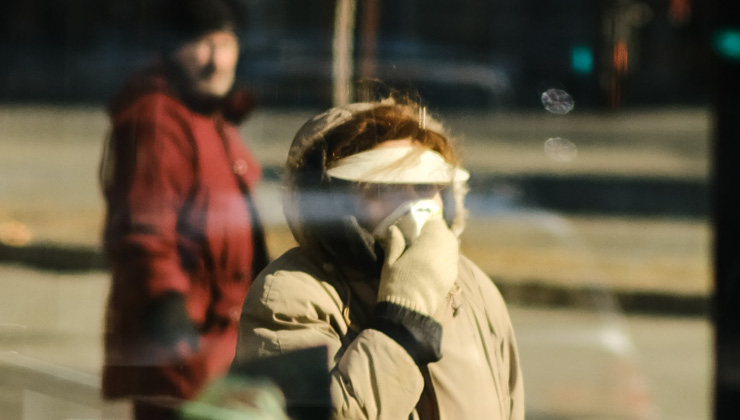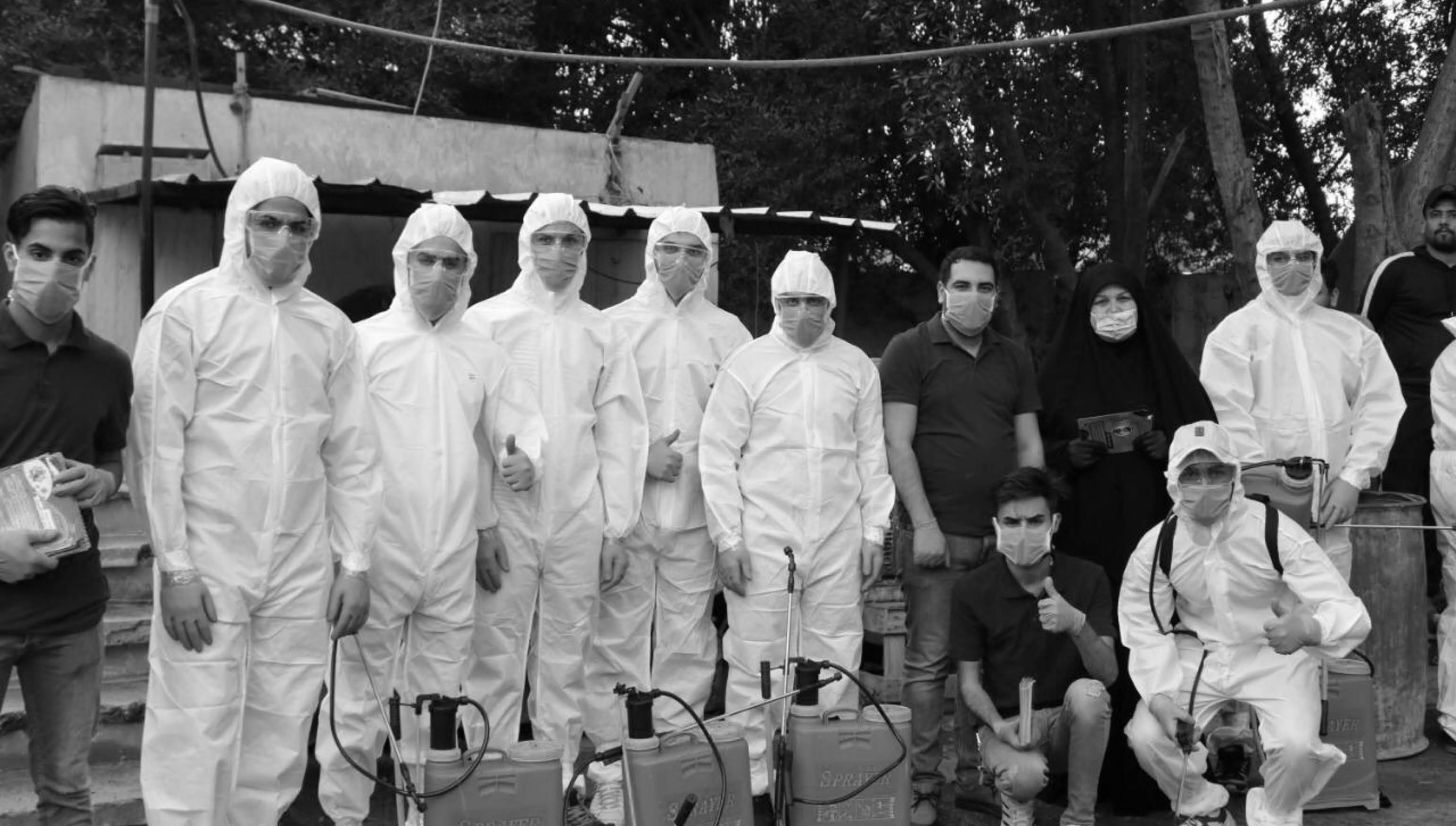Globally we are witnessing and experiencing the many social implications of COVID-19, but less attention has been given to the loss of social spaces and the political and societal ramifications of this as we begin to navigate our reimagining of the ‘public space’. Marie E. Berry and Milli Lake remind us why it is important for us to remember the importance of physical touch, intimacy and connection to build community, practice resistance, heal from trauma and escape oppression.
As the US and most of Europe enter into Week 7 of lockdown, much has been written on the economically devastating impacts of distancing measures, particularly for society’s most vulnerable. Commentators have also lamented many troubling social implications, with NGOs and public health practitioners highlighting crises of loneliness, domestic violence and mental health incurred by a reduction in in-person contact outside the home. While these challenges each demand urgent attention, their framing and proposed solutions have been markedly individualised, focusing on measures to support those at heightened risk, rather than scrutinising the broader societal and political ramifications that emerge in their wake.
Our research on women’s mobilisation and movement building warns of a different social and political threat posed by the COVID-19 response: fear. Specifically, a fear of others’ bodies, and the fear that we ourselves may be vectors capable of inflicting harm and even death on other human beings.
In many countries, public health messaging has been very clear about the reasons to stay home. Far beyond protecting oneself from illness and disease, societies across the globe have been told that staying home protects health infrastructure and saves lives. Messaging has emphasised that the simple act of leaving the house has the potential to transport the virus from one location to another, placing others’ lives in jeopardy through one’s breath, clothing or belongings. Governments have noted that staying home is the biggest act of solidarity and love one can perform.
Our research on women’s mobilisation and movement building warns of a different social and political threat posed by the COVID-19 response: fear. Specifically, a fear of others’ bodies
And in a remarkable demonstration of this messaging’s effectiveness, responsive citizens have rapidly embraced new ways of navigating public space, developing an almost instinctive impulse to preserve six feet of distance at all times. We find ourselves crossing the street to avoid coming too close to another human, or recoiling at the idea of someone unknown entering our orbit.
As we head into what is likely to be the most significant economic crisis of the past century, scholars and journalists have warned of the imminent and deeply sinister threats posed by increased technological surveillance and the extension of policing powers under new COVID-19 legislation. At a time when our collective capacity to mobilise against economic precarity and resist creeping authoritarianism is most needed, scholars have begun to grapple with what protest might look like in a post-covid world. But few have asked what this instinct to recoil from strangers might mean for politics?
Our research foregrounds the importance of physical touch, intimacy and connection for building collective power, for healing from trauma, and for cultivating an embodied politics of care.
Queer and feminist activists have long taught us that taking up space serves not only as a rejection of the oppressive internalisation of heteropatriarchy but as an antidote to the individualism and the unfettered pursuit of wealth and careerism that nurtures competition over solidarity. If love is a political act, it is often nurtured through building community, empathy and solidarity across religious, racial and class-based divides. Furthermore, forming bonds through public celebration, through dance, or through radical sexual politics, itself constitutes an act of resistance. When expressions of sexual liberation were threatened by the HIV Aids pandemic of the 1980s and 1990s, queer communities were prompted to reimagine alternative forms of counterhegemonic resistance through a politics of love and care.
The loss of spaces where sexual, gender, racial, religious and other minorities can congregate in person has powerful implications not only for building community, but also for healing from trauma, and for escaping oppression.
Post-colonial scholarship similarly teaches us that capitalist and imperial oppression seeks first and foremost to discipline the body. The mere act of gathering, messily and en masse, can subvert colonial and capitalist imaginaries of “civilizing” a productive and compliant workforce. As Achille Mbembe writes; “Against platonizing ideologies that would cast the body as a prison for the soul, [Congolese] dancing…is a celebration of the flesh.” Like the punk, post-punk and queer politics of the 1970s and 1980s, music, dance, and public celebration reflect the “colorful, capricious…regime of the ugly” that stands in stark opposition to capitalism’s alienation from the self.
The loss of spaces where sexual, gender, racial, religious and other minorities can congregate in person has powerful implications not only for building community, but also for healing from trauma, and escaping oppression.
Physical distancing is also used as a strategy to rupture solidarity between workers and fracture labour power. In the early decades of the twentieth century, ideologies of Taylorism and Fordism adopted by governments and corporations strove to physically separate workers from one another in order to undermine bonds that could form between them. It remains imperative to think about the repercussions of a distanced workspace for the future of capitalism and labour relations. While safe working conditions and strict employee protections must be guaranteed before mandating non-essential workers back to work, a lack of physical interaction has the potential to dampen the development of communities of fate and to undermine urgently needed opportunities for organised labour.
How should we think about building intimacy and solidarity across social and economic fissures when our very bodies are potential vectors for disease? What does it mean to practice resistance – and build cross-community solidarity – when our physical proximity endangers others, and places our health infrastructures – and societies’ most vulnerable – at greater risk?
We can (and must) engage in physical distancing. And as restrictions ease, it is imperative that we advocate for policies and regulations that protect the physical space and safety of workers. But we must work hard to resist a fear of other people’s bodies. While we can celebrate the ways movements have adapted to this new reality, we can and should mourn and protect what is lost. Physical closeness is valuable for more than just movement success–it is powerful for healing, and for fostering a politics of trust, empathy, love and care. We must centre this ethic in all that is to come. To walk blindly into an atomised and divided future would be to willingly embrace an evolving new apparatus of authoritarian control.
The views, thoughts and opinions expressed in this blog post are those of the author(s) only, and do not reflect LSE’s or those of the LSE Centre for Women, Peace and Security.
Image credit: Tim Mossholder on Unsplash






1 Comments